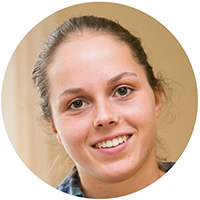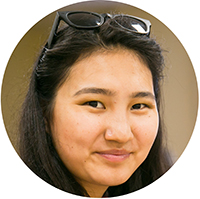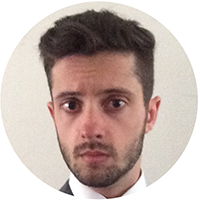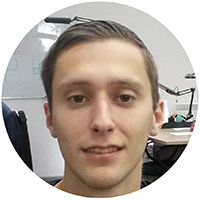International Students Get Acquainted with Moscow and HSE
Orientation sessions for new international students were held during the last two weeks of August at HSE Moscow. More than 200 exchange students from 80 countries will be spending the autumn semester taking courses in various HSE faculties. During the orientation, they learned about academic matters, administrative and safety issues, took a tour of HSE library, and attended roundtable discussions on life in Moscow and culture shock.
As Sofia Sadykova, head of International Student Support, notes, ‘most international students choose Russia for their exchange semester because they want to experience something different. A lot of students go on mobility programmes to grow up and feel what being independent is like. Many rely on the recommendations of their friends who have already studied at HSE. International students are traditionally interested in international relations and economics courses, as well as in Russian language studies. During our orientation sessions, we try to address the most common concerns that international students have in order to help them adapt more quickly to life in a new city. Apart from explaining how to register for courses, fill in the necessary paperwork and get around Moscow, we also talk about dealing with homesickness and getting used to the weather. Students are invariably fascinated by Moscow and opportunities it presents. The city looks quite European to them. Some students even observed that they feel safer in Moscow than in their home countries. They don’t believe that they will experience culture shock. Besides, they feel welcome at the university as a lot of people smile here and this breaks the popular stereotype that Russians never smile.’
Alongside events organized by the International Student Support, student buddies from HSE Erasmus Student Network held a series of informal activities to better acquaint international students with HSE and Moscow. These included a welcome picnic, guided tours around Moscow, city quests, and even pub crawls.

Joëlle Garcia Abrahamse, Tilburg University
For my study abroad experience I wanted to go to a country that’s different from the ones I grew up in. I was choosing between South Africa, Argentina, and Russia and I finally decided on Russia because it seemed most interesting from the point of view of international relations, which is the field I’d like to work in after I’m done with my studies.
My major is in Law with a focus on European and international law, so at HSE I plan to take courses in international relations, politics, and law. I’d also like to take the Russian language course that HSE offers since I already started learning it at my home university.
I visited Moscow and St. Petersburg before and liked them a lot – they are beautiful. Before coming to Moscow, I thought it would be more difficult to get around, but actually the metro system is very efficient and easy to use. While in Russia I’d like to visit some other cities. ESN is organizing trips to Murmansk and Kazan, which I’d like to join. I think it will be an interesting experience.

Gulzari Tursunova, Academy of Public Administration under the President of the Kyrgyz Republic
I am doing my bachelor’s in public administration, so I wanted to go to Moscow because both Russia and the Kyrgyz Republic are part of the Eurasian Economic Union and it will be useful for my future career as a civil servant. I will be taking both public administration and economics courses. I speak Russian fluently but plan to choose English-taught courses because I’d like to do my Master’s abroad and I think studying in English will be good for me.
I first came to Moscow five years ago to take part in an international Olympiad in Russian language. I was greatly impressed by the city and decided I would love to come back one day. I am happy my dream has come true. This is not my first semester abroad. I’ve already spent a semester in the USA. This was actually one of the reasons I decided to go to Russia next – to get a more balanced view of various political issues.

Roderik Turksema, Maastricht University
In my study programme, we are required to go abroad for six months, and there is a big list of exchange locations to choose from. I’ve had the privilege of living in several countries already. I didn’t want to do something typically Western – like Germany or Spain. I looked at China and South America, but in the end Moscow really spoke to me. It’s not so far away but it’s politically and socially different from what I’ve seen before. I’m really looking forward to seeing this on a personal level – by talking to local people, for instance. I’d also like to look at the media here to get a more balanced view of what is happening. Since I am majoring in Maths, I will be taking courses in mathematics and computer science, and of course Russian language.

Luuk Peters, Leiden University
I went to St. Petersburg two years ago on another exchange, and afterwards, I decided that Russia would be my future field of study. So now I am doing my Master’s in Russian and Eurasian studies with a focus on politics, economics, and a bit of history and geography. We cover almost everything except for the language. I still don’t know Russian, which is why I came here to learn it – that’s my main focus. I have some Russian-speaking friends, so I think I will have plenty of speaking practice. In addition to the Russian language course, I will be taking courses on Russian politics.
I visited Moscow when I was first in Russia and fell in love with the city. I’ve already been to several activities offered by ESN. They are a good way of learning the city a little better and getting to know the people.
See also:
Adapting to a New Habitat: Resources for International Students at HSE
More and more international students are coming to HSE University as part of their study abroad experience. In the 2018-2019 academic year HSE University hosted 445 exchange students, compared to 342 last year. The largest numbers of international students come from Germany, France, Italy, the Netherlands, and the UK. Is life easy for international students at HSE University? And what does HSE University do to help them?


